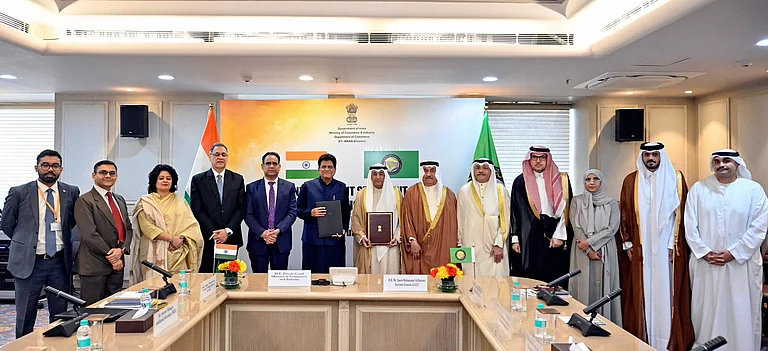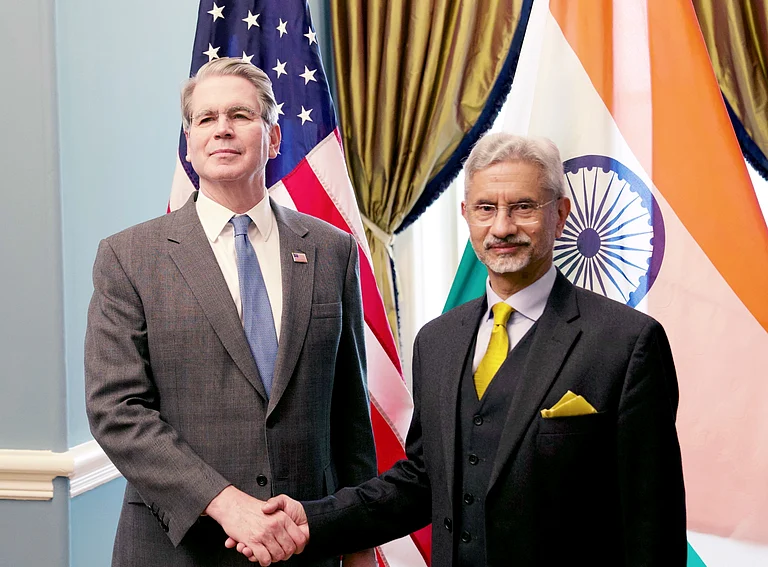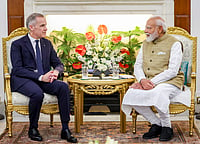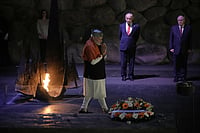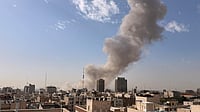Ukraine’s foreign minister Dmytro Kuleba is in India, the first visit by a senior Ukrainian minister since the war started in 2022. He met with external affairs minister Subramanyam Jaishankar Friday afternoon and will also talk to deputy national security advisor Vikram Misri.
Kuleba has come at a time when efforts are on by the Swiss for a peace conference aimed at ending the Russia-Ukraine war, tentatively slated for June. Ukraine wants India on board, though New Delhi has so far maintained an enigmatic silence on its participation. MEA spokesman Randhir Jaiswal said on Thursday, “We continue to encourage peaceful resolution of the conflict through dialogue and diplomacy, and remain open to engaging all ways and means that would help achieve this objective.” The Swiss are equally keen to get both India and China to participate in the peace meet to give additional weight to the event. Switzerland as a neutral country and not part of NATO is in a position to host the talks.
Earlier in February Swiss foreign minister Ignazia Cassis was in Delhi to gather support for the peace conference. He also visited China. The Swiss are keen to get the support of both Prime Minister Narendra Modi and President Xi Jinping.
At the beginning of the war, when India refused to condemn Russian military action, Ukraine’s reaction was angry. Again, India ignored Western sanctions against Moscow and continued to buy oil, Ukraine like the US and its European allies were outraged. Yet now this issue is dead, India will continue to do what is good for its people, and this is being accepted. Modi’s remark to President Vladimir Putin that this is not an era of war mollified many Western critics carping at New Delhi’s consistent abstention from UN resolutions against Russia.
From the start however India had been providing humanitarian assistance to Ukraine. Prime Minister Modi and President Zelenskyy have spoken several times on the phone, the last one a week before Kuleba’s visit. Ukraine is keen on the peace conference, but without Russian participation. Kiev wants Russian troops to withdraw from all Ukrainian territory. Moscow has predictably dismissed the demand.
Ukraine’s keenness to resolve the issue ahead of the US elections in November is understandable. The war is dragging on with no outright victory for either side and donors increasingly reluctant to finance Ukraine’s long-drawn war.
With opinion polls showing Donald Trump ahead of President Biden there is the possibility of a Trump Presidency after the elections. Last year Trump boasted that he would end the Ukraine war in 24-hours when he reclaimed the White House. He did not spell out his plans but said as he has good relations with both Vladimir Putin and Zelenskyy he would get a peace deal through. Earlier this month (March 8), Hungarian President Viktor Orban said after a meeting with Trump, that he will not spend US tax payers money to fund the Ukraine war.
Efforts to get more countries to support the peace plan is on with both Switzerland and Ukraine keen on getting as many countries as possible for the conference. India and China both with excellent ties to Moscow are being encouraged to come aboard.
Jaishankar said on X after his meeting this afternoon with Kuleba that he had "An open and wide-ranging conversation…Our discussion focused on the ongoing conflict and its wider ramifications. Exchanged views on various initiatives in that context. Spoke as well on global and region issues of interest to both of us, reiterated our commitment to strengthen the overall relationship, including bilateral cooperation.’’ India was briefed on the broad outlines of Ukraine’s peace proposal during the talks. India’s views have naturally not been made public. New Delhi with excellent ties with Russia is in a position to carry the message to interlocutors in Moscow.
In a recent interaction in Singapore with the Indian diaspora, Jaishankar had said "Russia is a country with which we have always had a positive relationship," at the same time he also said that India could be blunt with Moscow.
“India can play a very important role in bringing together more nations from the Global South,’’ Kuleba had said in various interviews with Indian journalists, painted New Delhi’s ties as largely based on historical ties or in his words "the Soviet legacy" and reminded India that this legacy is evaporating in a reference to India’s recent bid to diversify its defence purchases. He also said held out the prospect of Ukraine importing Indian farm products and heavy machinery.
While Kuleba laid out the temptation of more imports from India and bilateral issues figured in the conversation, the aim was to garner support for the peace conference. However with Ukraine’s insistence on Russian soldiers withdrawing from its territory, the likelihood of any positive outcome is unlikely.





